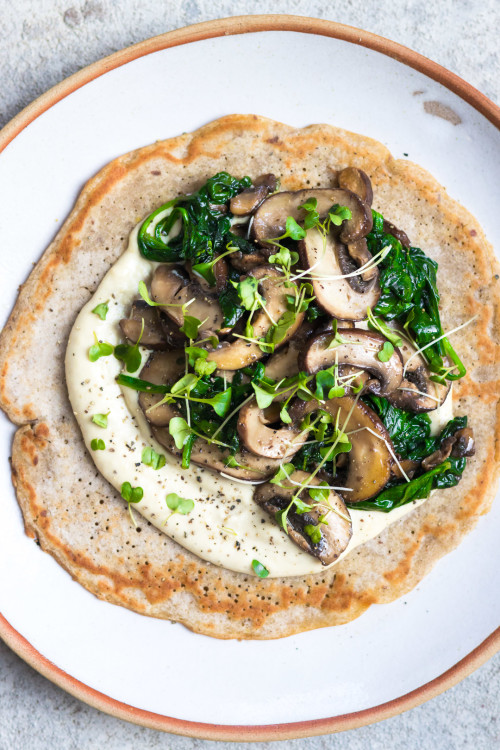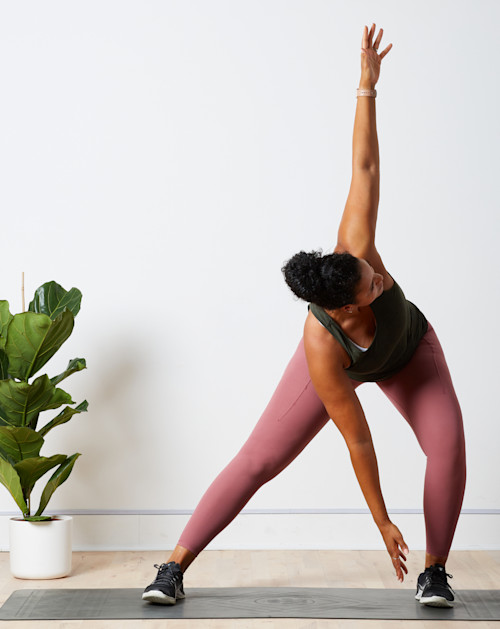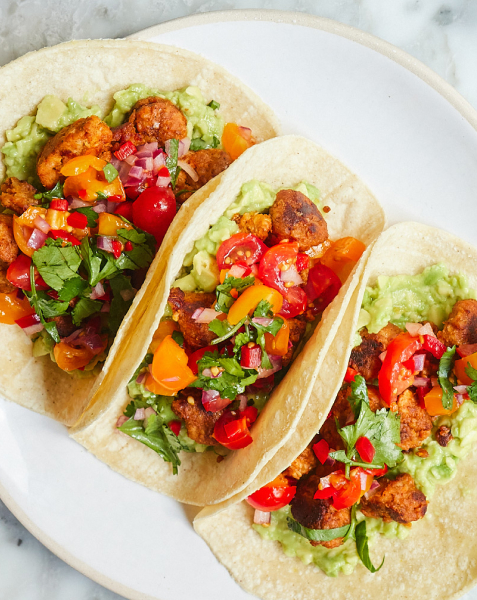Looking for high protein plant-based foods? We’ve got you covered! There are so many delicious sources of plant-based proteins to choose from.
Protein is a vital macronutrient found in every cell of the body. It’s involved in everything from energy production to building hormones and neurotransmitters (which affect our mood and emotions) and allowing our hormones and immune system to work effectively. It’s also essential for building and repairing cells and tissue, including the skin, hair, muscle and bone.
Current guidelines advise that healthy adults need around 0.75–0.8g of protein per kilo of body weight each day. So, if you weighed 60kg, your daily protein needs would be roughly 45-48g.
Getting enough protein is a common concern when moving towards a plant-based diet but don’t worry, almost everyone gets enough protein.
When it comes to ensuring you’re eating lots of plant protein, the best tip is to think about adding at least one source to each meal, aiming to fill about a quarter of your plate with protein-rich plant foods. For example, you could add hemp seeds and almond butter to your morning porridge; lentils and a tahini dressing to a salad at lunchtime and tofu to an evening stir-fry or curry for dinner. With this you’d have over 50g of protein in a day.
So, what are the best plant-based protein sources?
1. Legumes & pulses
Beans, chickpeas, lentils, and peas are nutritional powerhouses packed with protein, fibre, vitamins, and minerals. There are so many varieties to choose from, which means you can get a real mix of tastes and textures to suit any recipe. Per 100g, lentils provide 8-9g of protein, peas and chickpeas (including hummus!) 7g of protein, and beans between 7-10g of protein.
Packed with protein, this simple recipe comes together in 30 minutes, making it a great midweek supper. The crispy spiced kale and chickpeas add texture, while the harissa gives a subtle — but delicious — kick to each bite.
View RecipeThis vibrant green dip is easy to make and higher in protein than classic hummus, plus it’s got a good hit of calcium from the edamame.
View RecipeThis healthy, hearty bolognese is packed full of vegetables. It’s a delicious and satisfying way to incorporate more wholefoods into your diet.
View Recipe2. Soy products
tofu, tempeh, and edamame are fantastic sources of plant protein. Tofu is especially versatile and works well in a variety of dishes, both sweet and savoury. Per 100g, tofu has 8g of protein, while tempeh has 10g and edamame 11g.
This curry tastes so good and it couldn’t be easier to put together! It’s one of those recipes you’ll come back to time and time again, and is ideal for when you’re staring into the cupboard for inspiration.
View RecipeWhether Taco Tuesday is your thing, you’re looking to shake up your mid-week meals, or you want to treat family and friends at a weekend get-together, this recipe is just the ticket. Packed with plant-based protein, these tacos are fabulously fun, gloriously messy and seriously satisfying. Consider the salsa and guacamole as optional extras — fill your tacos with whatever you have in the fridge: spring onion; lettuce; bell peppers; or tinned sweetcorn would also be delicious.
View RecipeThis is the ultimate Valentine's day dessert — rich chocolatey mousse served with sweet fresh raspberries.
View Recipe3. Nuts & seeds
hink almonds, walnuts, peanuts, cashews, chia seeds, flaxseeds, pine nuts, hemp seeds, and pumpkin seeds (both whole nuts and nut butters). Again, the beauty of these foods is that they’re not just filled with plant protein, but they’re also full of healthy fats, vitamins, and minerals. Try to mix and match different varieties across the week for optimum nutritional benefit (current research suggests we should be aiming for 30+ different plants a week for optimal gut health). Per tablespoon, hemp seeds have 5g of protein; pumpkin seeds and Brazil nuts 4g; almonds, ground flaxseeds, walnuts, chia seeds and cashews 3g.
This is the recipe for our delicious Nutty Granola. We love to enjoy it with almond milk and a handful of fresh berries, or as a topping on coconut yoghurt or smoothie bowls.
View Recipe4. Whole grains
Quinoa, brown rice, buckwheat, oats, barley, and farro not only provide carbohydrates but also offer a significant amount of protein. Quinoa, in particular, is a complete protein, containing all nine essential amino acids and provides 14g of protein per 100g. Barley has 12g of protein per 100g, Oats have 11g of protein per 100g; buckwheat and spelt have 5g; while brown rice, amaranth and teff have 4g.
This is a very quick salad recipe, which makes it perfect for midweek dinners. The tamari almonds add a delicious crunch to the whole dish, while the cooked sweet potatoes are soft and taste amazing with the quinoa. We love to mix through almond butter, lemon juice and creamy tahini to bring the whole dish together.
View RecipeCrunchy roasted almonds, garlicky tomatoes, soft pearl barley and fresh herbs are mixed together with a drizzle of olive oil and balsamic vinegar to create this delicious salad. We love to enjoy it as a side or on its own with a dollop of sun-dried tomato hummus.
View RecipeStart your day right with a warming bowl of creamy porridge — with hemp and chia seeds, it’s supercharged with fibre, protein and healthy fats. Flavoured with juicy antioxidant-packed blueberries, breakfast never tasted so good.
View RecipeOur most popular muffins yet. These are sweet, super satisfying and have a lovely warmth from the of cinnamon. They’re also incredibly easy to make.
View Recipe5. Vegetables
Vegetables may not be as high in protein as other plant foods, but lots of delicious veggies still contain plant-based protein. Peas provide 5g of protein per 100g; sweetcorn, kale, broccoli and spinach have 3g, cauliflower has 2g and avocado 1.5g. Whilst none of them are super high in protein on their own, adding a variety to each meal will boost your overall protein intake.
The ideal 10-minute lunch. Great for busy days or as a quick snack for little ones, served either on toast or rice cakes. Plus the pea and broad bean mix makes a nice change from everyone’s usual go-to of avocado toast. This is equally delicious, but higher in protein.
View RecipeMoreish and creamy, with a golden crispy topping, our Broccoli Pasta Bake is packed with veggies and full of flavour. Load up on goodness with broccoli, peas, leeks and butter beans, in a deliciously rich sauce using cashews, wholegrain mustard and nutritional yeast. This is bound to be a new family favourite.
View RecipeThis is one of my favourite, simple soups, packed with greens and seasoned amazingly by the nutritional yeast.
View Recipe6. Plant protein powders
hese are another way to add plant protein to your meals in a quick way. These powders are typically made from sources like peas, rice, hemp, or a blend of several plant proteins. Add them to smoothies, porridge, or bakes for an extra boost of protein. Per serving, most plant-based protein powders provide 20-25g of protein.
This simple, yet seriously satisfying, 4-ingredient smoothie comes together in moments — the perfect afternoon snack or light breakfast.
View RecipeIf you want a sweet afternoon pick-me-up then this is your go-to recipe — with peanut butter, hemp seeds and chia seeds, it packs in the protein to keep you feeling fuller for longer. Freezing ripe bananas for smoothies makes them extra thick and creamy — just peel, chop and store.
View RecipeWhizz up a satisfying breakfast smoothie in minutes. Packing in plenty of nutritious ingredients, such as spinach, banana, hemp and chia seeds, it will keep you going through until lunchtime.
View RecipeAs you can see, there are lots of high protein plant-based foods to choose from. By combining these plant-based protein foods you can create delicious and nourishing meals that fuel your body, supercharging your energy and day-to-day wellness!






























